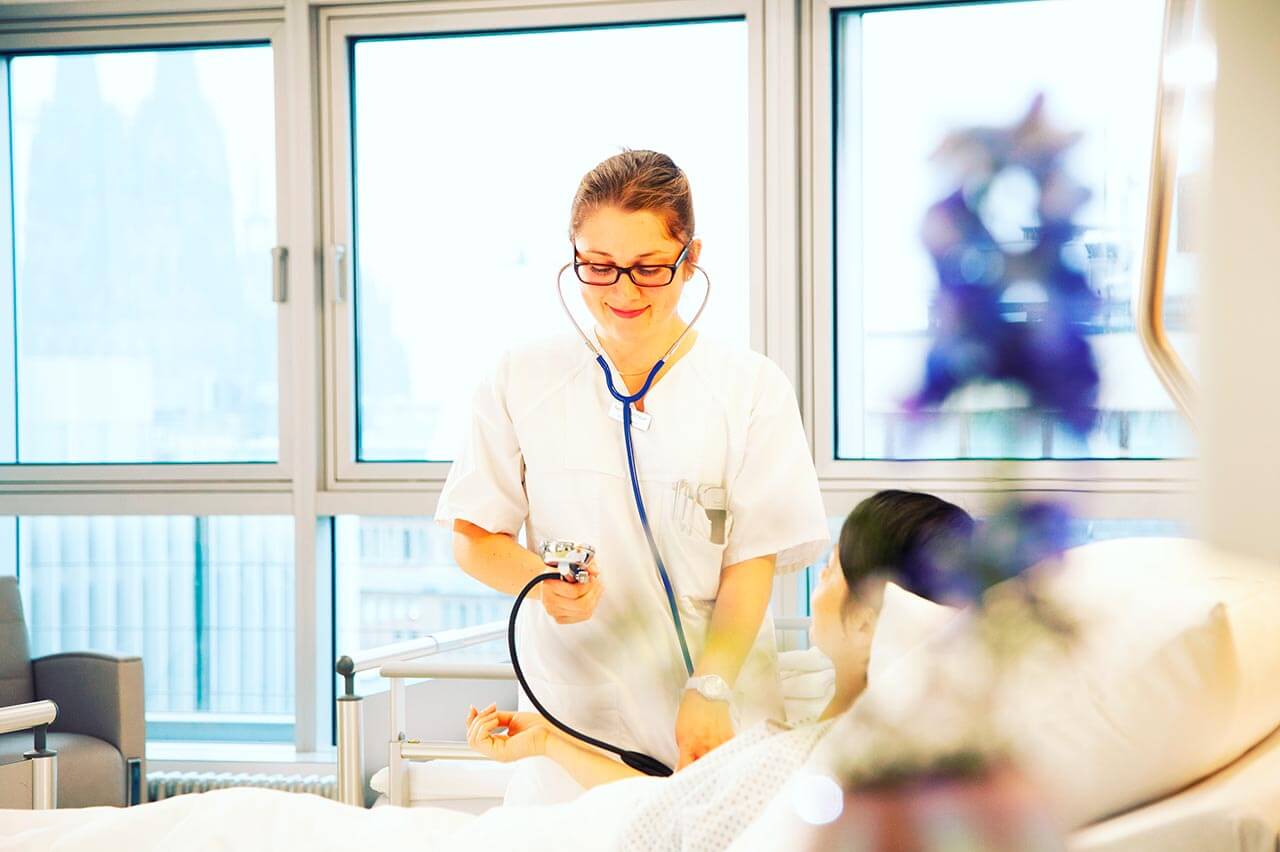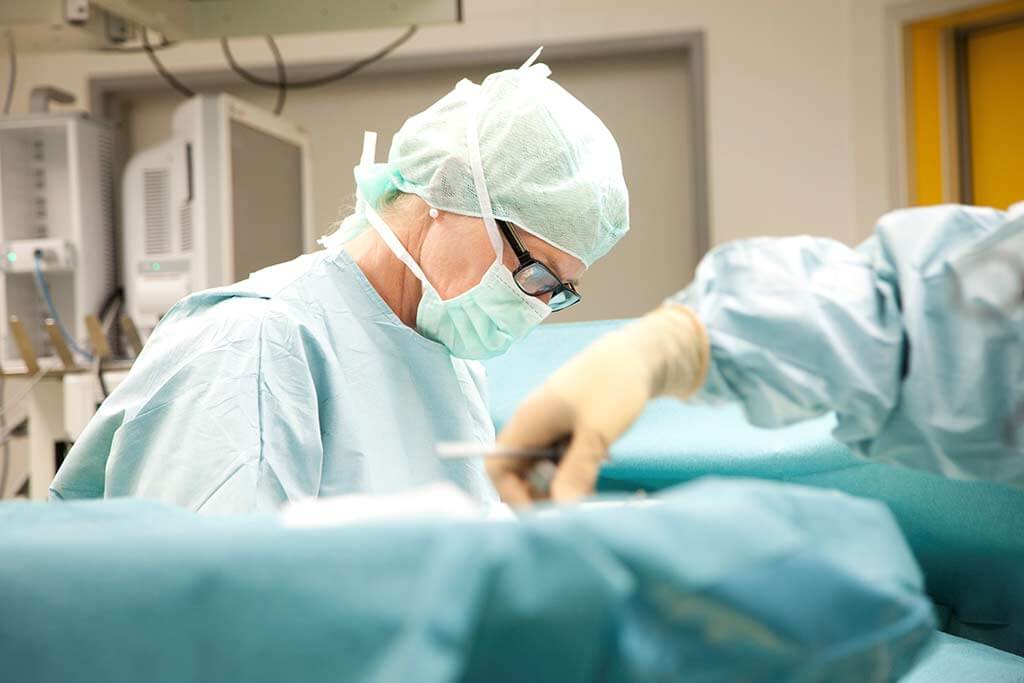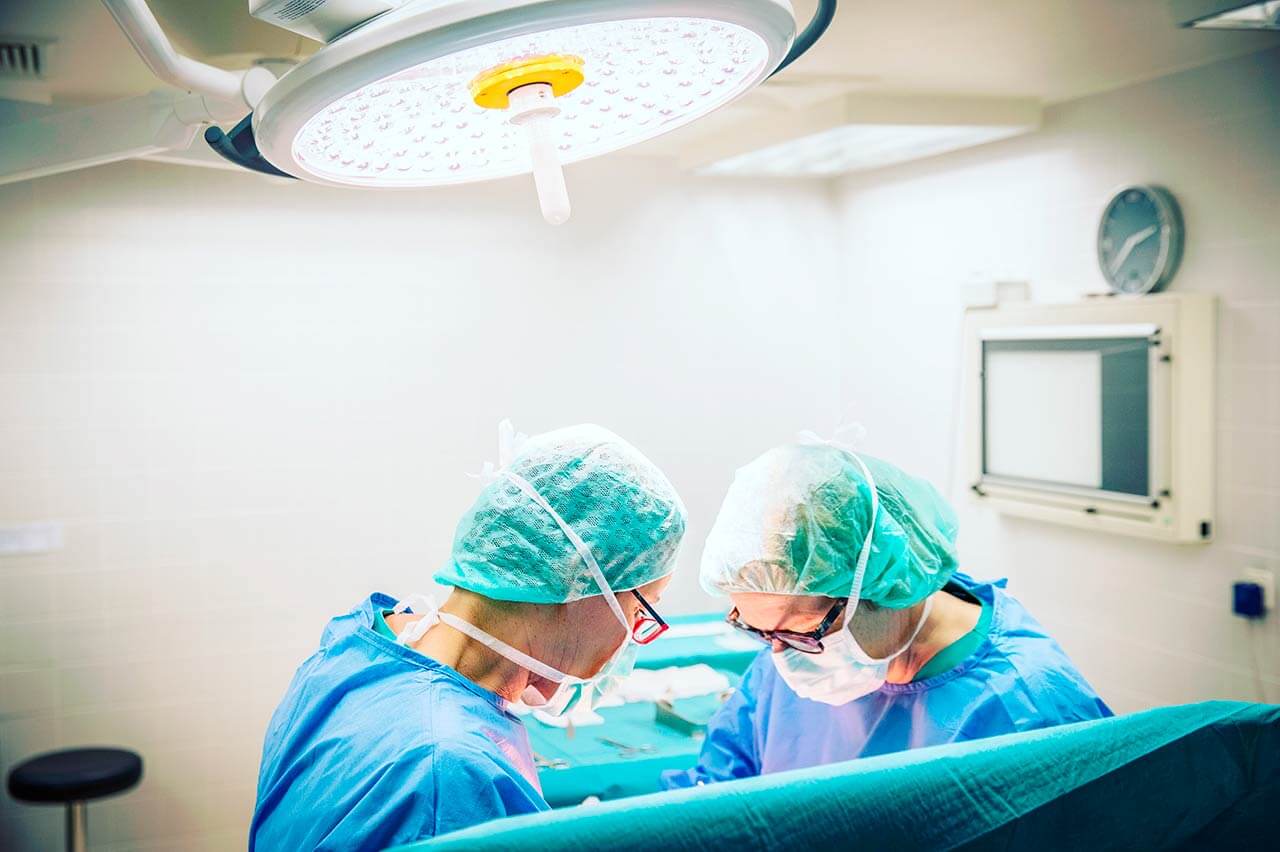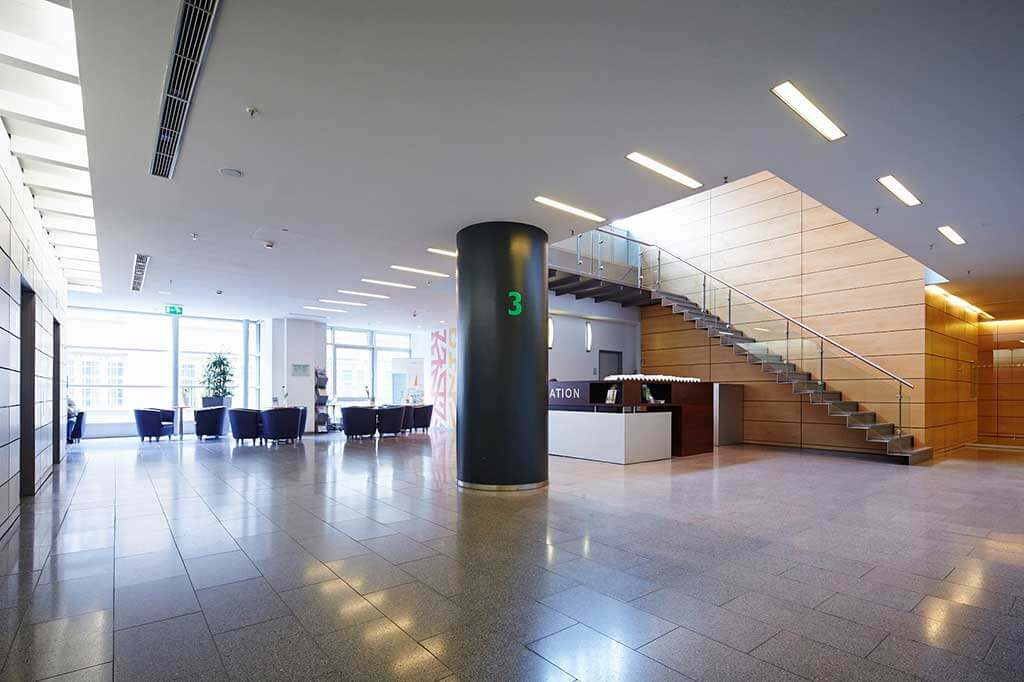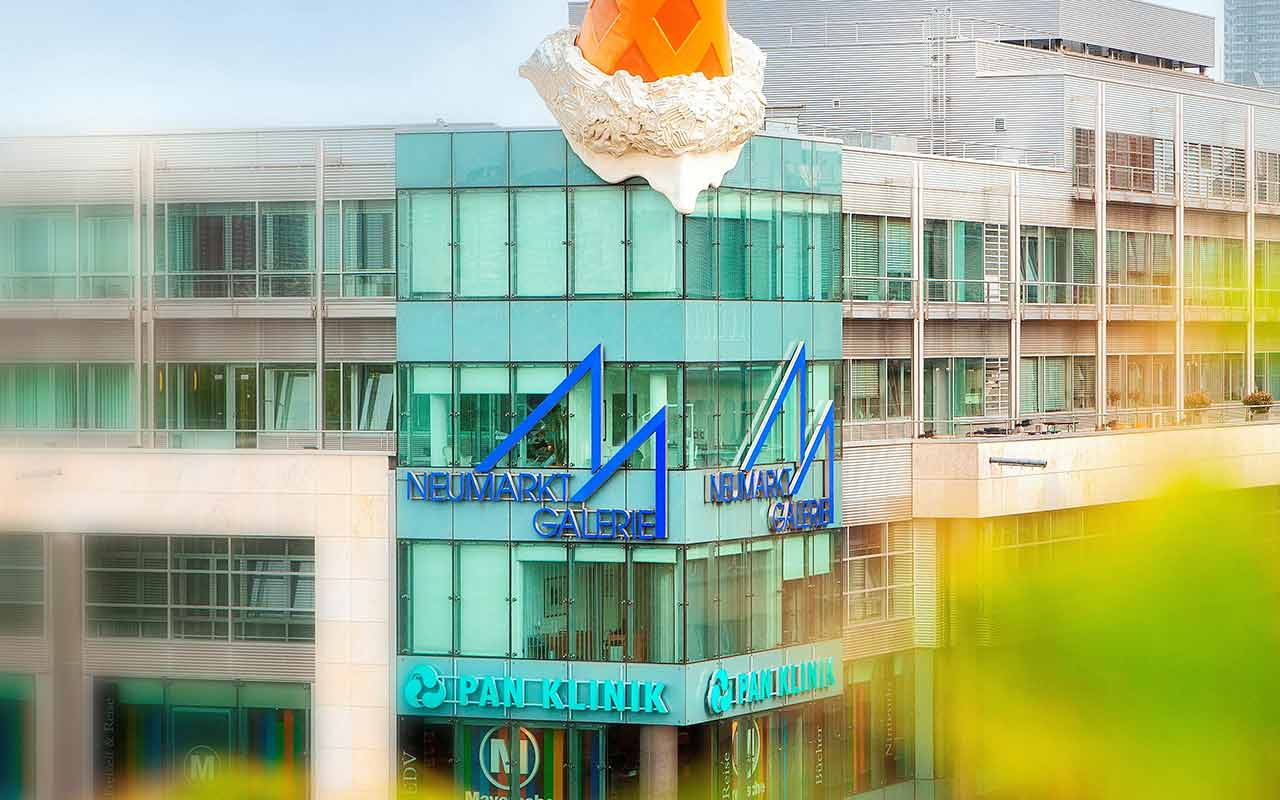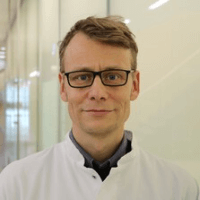
The program includes:
- Initial presentation in the clinic
- clinical history taking
- review of medical records
- physical examination
- laboratory tests:
- complete blood count
- general urine analysis
- biochemical analysis of blood
- inflammation indicators (CRP, ESR)
- indicators blood coagulation
- neurological examination
- CT/MRI scan
- neuropsychological tests (on indications):
- ENMG (electroneuromyography)
- EEG (electroencephalography)
- SEPs (somatosensory evoked potentials)
- VEPs (visually evoked potentials)
- BAEP tests (brainstem auditory evoked potential)
- preoperative care
- neuronavigation-assisted surgical removal
(resection) of spinal astrocytoma - histologically and immunohistochemically
examination of the remote tissues - blood transfusions (if needed)
- 1-day intensive care unit stay
- symptomatic treatment
- control examinations
- the cost of essential medicines and materials
- nursing services
- full hospital accommodation
- explanation of future recommendations
Required documents
- Medical records
- MRI/CT scan (not older than 3 months)
- Biopsy results (if available)
Service
You may also book:
 BookingHealth Price from:
BookingHealth Price from:
About the department
The Department of Neurosurgery at the PAN Clinic Cologne provides the full range of diagnostic and therapeutic services in the area of its specialization. The team of the department's doctors specializes in the surgical treatment of diseases of the central and peripheral nervous system. The department's neurosurgeons focus on patients with pathologies of the brain and spine. The first stage of the therapeutic process is an individual consultation with the attending physician, during which the specialist determines the required complex of further diagnostic tests for making an accurate diagnosis and choosing the optimal treatment tactics. Whenever required, the specialists from the Department of Neurosurgery of the University Hospital Cologne are involved in the therapeutic process. The operating rooms in the department have state-of-the-art equipment and monitoring systems, thanks to which the patients are guaranteed the highest level of safety during the surgical procedure. In addition, the neurosurgeons working in the medical facility prefer sparing minimally invasive surgery, after which patients recover rapidly. The department is headed by Dr. med. Dierk-Marko Czybulka.
The primary focus of the department's clinical practice is on the conservative and surgical treatment of spinal diseases. Conservative treatment methods actively used by the department's doctors include drug-induced pain therapy, physiotherapy to relieve symptoms and eliminate pain, as well as infiltration therapy (periradicular therapy and facet joint block). Prior to any therapeutic measures, the department's neurosurgeons perform CT and/or MRI to assess the condition of the spine. Infiltration therapy is performed under X-ray guidance, which guarantees the highest accuracy and safety of the manipulation. However, many spinal diseases do not respond to conservative treatment, and only surgical intervention can restore normal functioning of the organ. A huge advantage for patients is the fact that the team of neurosurgeons of the medical facility has a successful experience in the field of sparing minimally invasive operations with surgical access through several small skin incisions. For example, the department performs surgery for herniated discs and stenosis of the cervical, thoracic and lumbar spine using minimally invasive techniques. When performing such surgical procedures, the specialists use modern surgical microscopes, which excludes trauma to the adjacent healthy tissues and anatomical structures. The department's therapeutic offer in the field of spinal surgery is complemented by stabilizing surgery for spondylolisthesis, degenerative, traumatic, infectious and oncological diseases, microsurgical interventions to remove intraspinal tumors and revision (repeated) spinal surgery, for example, in case of fractured fixing screws or displaced implants.
The department's neurosurgeons often perform surgery to remove brain tumors (gliomas, meningiomas, etc.) and brain metastases. The doctors consider each clinical case of patients with brain tumors at interdisciplinary boards with the participation of oncologists, radiologists, neurologists and other experts. Since brain surgery is one of the most complex interventions, the specialists thoroughly plan each stage of the surgical procedure. When performing operations on the brain, doctors necessarily use progressive neuronavigation systems. The department also offers intraoperative fluorescence-guided glioma surgery with five-aminolevulinic acid (5-ALA).
The department can be proud of its excellent results in the field of surgical treatment of diseases of the peripheral nervous system. The focus is on microsurgical interventions for peripheral nerve compression and microsurgical operations for nerve ending tumor resection (for example, schwannomas and neurofibromas).
The department's range of medical services includes:
- Diagnostics and treatment of spinal diseases
- Conservative treatment methods
- Drug-induced pain therapy
- Physiotherapy for symptom alleviation
- Targeted infiltration therapy (periradicular therapy and facet joint block)
- Cryotherapy for facet joint lesions (for the treatment of back pain)
- Surgical treatment methods
- Minimally invasive microsurgical interventions for herniated discs, as well as cervical, thoracic and lumbar spinal stenosis
- Surgery for cervical spinal diseases
- Ventral discectomy with cage implantation
- Dorsal foraminotomy (Frykholm's method)
- Ventral discectomy with spinal disc replacement surgery
- Decompression combined with spondylodesis
- Surgery for lumbar spinal diseases
- Microsurgical sequestrectomy
- Microsurgical decompression
- Spinal fusion
- Cervical disc replacement surgery
- Spinal stabilization surgery to correct spondylolisthesis (vertebral displacement)
- Spinal stabilization surgery on all parts of the spine for degenerative, traumatic, infectious and tumor lesions
- Spinal stabilization surgery for pathological lesions of the craniocervical junction
- Microsurgical removal of spinal (located inside the spinal canal) tumors
- Revision (repeated) surgery for fractured fixing screws, displaced implants and other complications after spinal surgery
- Conservative treatment methods
- Diagnostics and treatment of brain cancer
- Surgical resection of brain tumors (for example, gliomas, meningiomas, brain metastases) using neuronavigation systems and intraoperative 5-aminolevulinic acid fluorescence
- Diagnostics and treatment of diseases of the peripheral nervous system
- Alternative treatment methods for neuropathic pain
- Microsurgical interventions for peripheral nerve compression
- Microsurgical interventions for nerve tumors (for example, schwannomas, neurofibromas)
- Diagnostics and treatment of pituitary disorders
- Drug and surgical treatment of pituitary adenoma, acromegaly and Cushing's disease
- Diagnostics and treatment of vascular diseases of the nervous system
- Classical and endovascular interventions for the treatment of aneurysms and various vascular malformations (for example, arteriovenous malformations, dural arteriovenous fistulas, cavernomas)
- Skull base surgery
- Surgical resection of skull base tumors (meningiomas, chordomas, craniopharyngiomas, vestibular schwannomas)
- Microvascular decompression (elimination of pathological contacts between cranial nerves and vessels) in trigeminal neuralgia, glossopharyngeal neuralgia, etc.
- Other medical services
Curriculum vitae
Higher Education and Professional Career
- 1991 - 1999 Study of Human Medicine, Philipps University of Marburg.
- 06.1999 - 12.2000 Internship.
- 2001 - 2004 Assistant Physician, Department of Neurosurgery, Hospital Aschaffenburg.
- 2005 - 2010 Assistant Physician, Department of Neurosurgery, Hospital Merheim.
- 06.2009 Board Certification in Neurosurgery, Medical Association of North Rhine Westphalia.
- 07.2010 Acting Senior Physician.
- 04.2012 Senior Physician.
- 01.2015 Senior Physician, Department of Neurosurgery at the University Hospital Cologne.
- Since 01.01.2020 Chief Physician of the Department of Neurosurgery at the PAN Clinic Cologne.
Clinical Interests
- Spinal surgery.
- Surgical correction of spinal deformities.
- Surgical treatment of brain tumors.
Photo of the doctor: (c) PAN Klinik
About hospital
The PAN Clinic Cologne is a multidisciplinary medical facility that combines advanced medicine, excellent quality of patient care and a high level of comfort. Founded in 1999, the clinic is located in the very heart of Cologne. During this time, the medical complex has gained long clinical experience, but at the same time it has preserved its primary concept of medical care – high-quality diagnostics and treatment using the achievements of modern medicine.
Today, a huge team of doctors at the clinic admits patients in 25 medical fields, including neurosurgery, neurology, orthopedics, cardiology, gynecology, mammology, urology, endocrinology, plastic surgery, etc. It is worth noting that the clinic employs the best specialists with a wealth of experience and thorough clinical training in the best medical facilities in Germany, other countries of Europe and USA. The clinic's medical team includes many professors who are distinguished by outstanding achievements in the treatment of diseases of a particular profile and who successfully conduct research activities, participate in national and international congresses, symposia and other events.
The clinic annually provides treatment to more than 10,000 patients, and more than 3,000 interventions of varying complexity are performed in its operating rooms. The operating theaters have state-of-the-art technology and equipment for classical open surgery and minimally invasive interventions. In addition, all departments of the medical facility have advanced diagnostic equipment, so that doctors always make the correct diagnosis, which determines the success of subsequent treatment. During the therapeutic process, the specialists strive to choose the most sparing, but at the same time highly effective treatment regimen.
The quality of medical services provided in the clinic is awarded with the prestigious DIN ISO 9001 certification, and therefore patients trust their health to doctors with complete confidence and benefit from the optimal treatment of the European standard.
Photo: (с) PAN Klinik, (c) depositphotos
Accommodation in hospital
Patients rooms
The patients of the PAN Clinic Cologne live in light and cozy rooms with a modern design. A standard patient room includes a comfortable automatically adjustable bed, a bedside table, an air conditioning, a DVD player, a telephone, a TV and a nurse call system. The patient rooms also have Wi-Fi. Each patient room has an ensuite bathroom with shower and toilet. The bathroom also has a hairdryer and towels.
If desired, the patients can live in enhanced-comfort rooms. These patient rooms are distinguished by their more exclusive interiors, as well as beautiful views of the Cologne Cathedral and cityscapes. The bathrooms in these enhanced-comfort facilities include disposable slippers, a bathrobe, towels and toiletries. In addition, the patients living in enhanced-comfort rooms are offered a special menu.
Meals and Menus
The patient and his accompanying person are offered tasty and balanced three meals a day: buffet style breakfast and dinner, as well as lunch consisting of 3-4 courses. If for some reason you do not eat all the foods, you will be offered an individual menu. Please inform the medical staff about your dietary preferences prior to treatment.
Further details
Standard rooms include:
Religion
The religious services are available upon request.
Accompanying person
During the inpatient program, the accompanying person can live with the patient in a patient room or a hotel of his choice. Our managers will help you choose the most suitable option.
Hotel
During the outpatient program, the patient can stay at the hotel of his choice. Our managers will help you choose the most suitable option.
